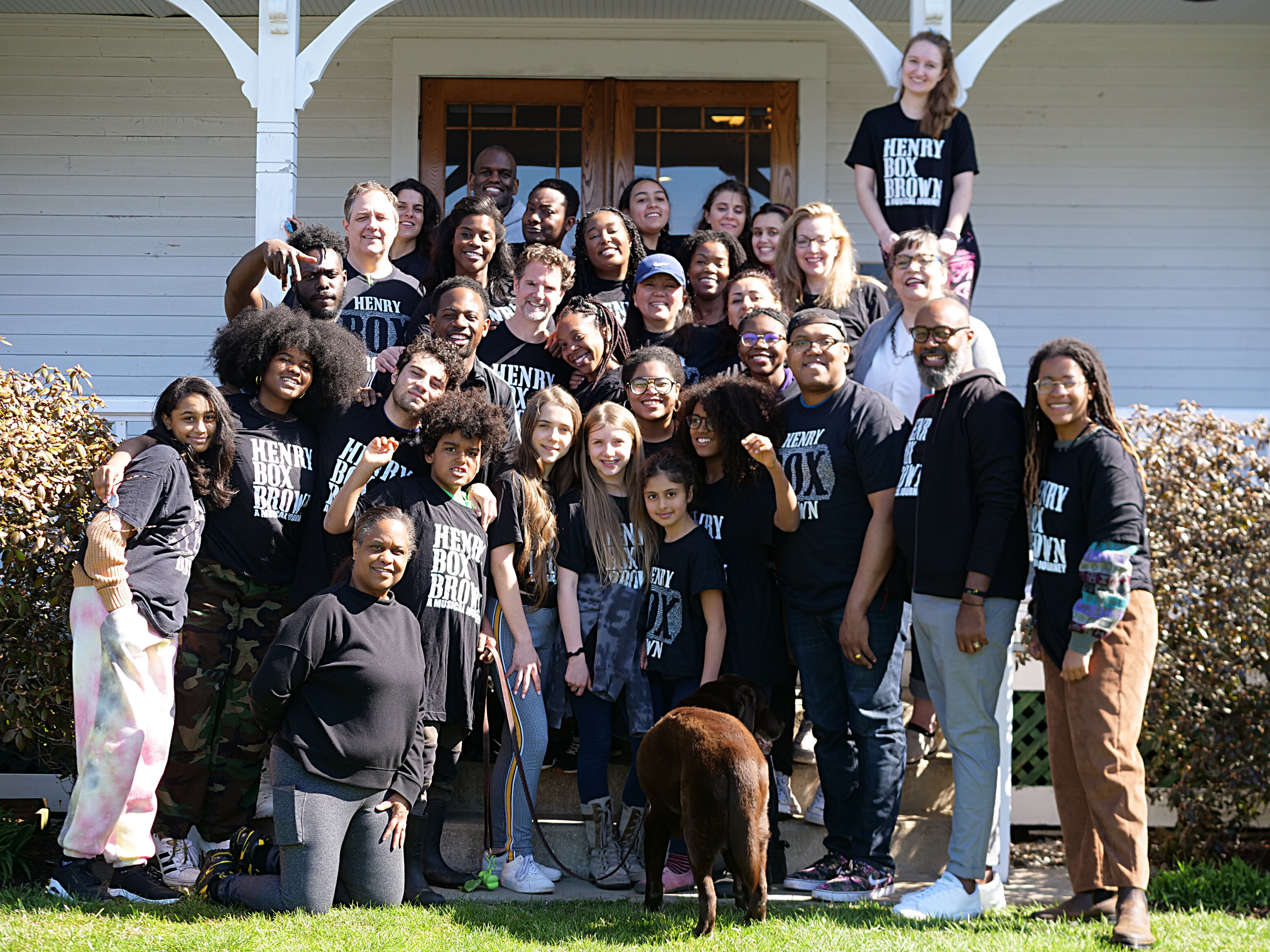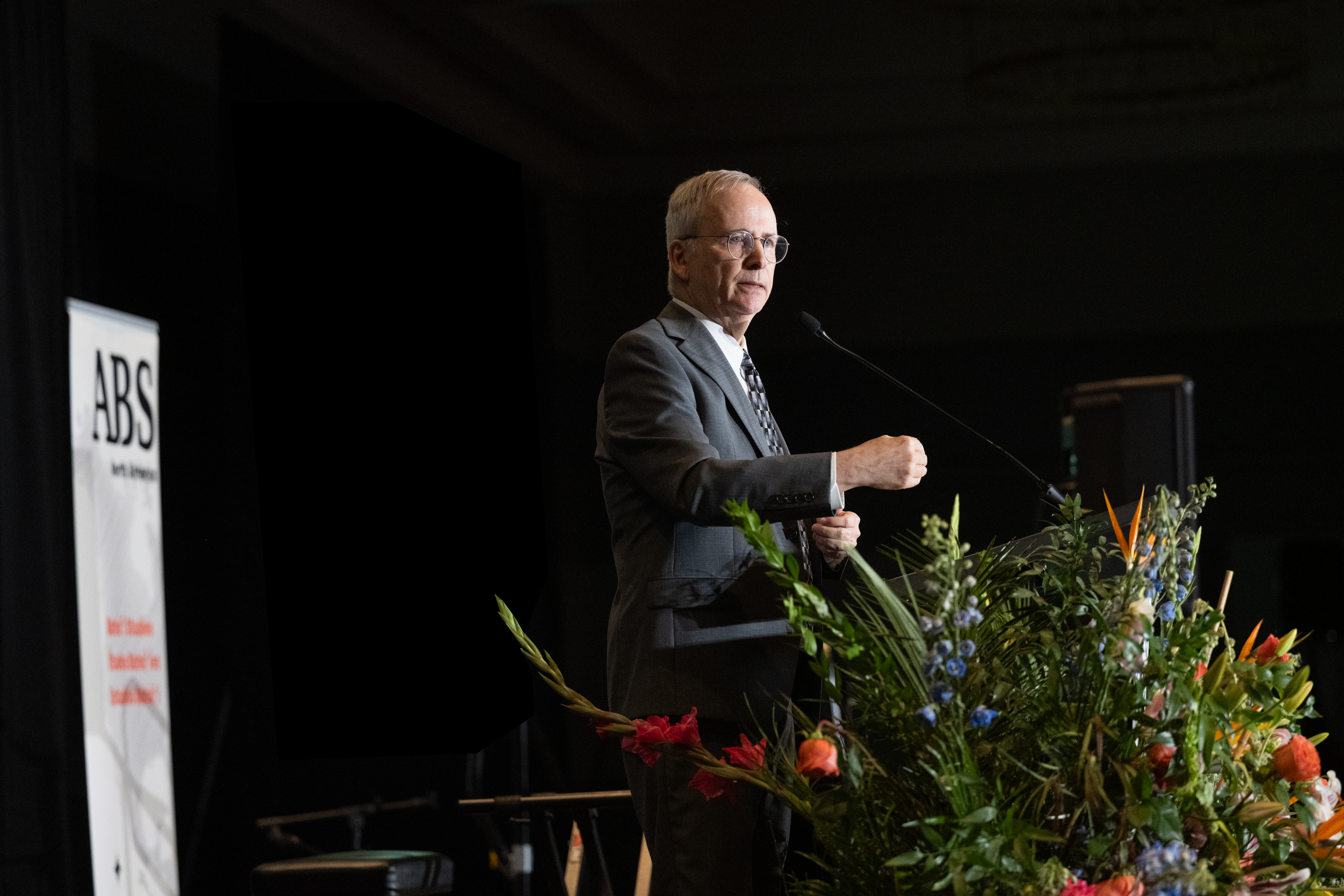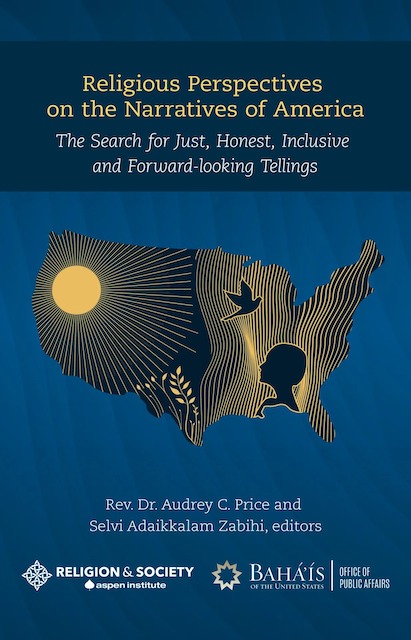
From education to jazz: Insights from the 2024 Bahá’í Chair for World Peace

“Discourse” ranges from conversations in formal collegiate spaces to informal conversations on the corner with neighbors. During 2024, the Baha’i Chair for World Peace at the University of Maryland hosted a series of lectures to advance discourse on global peace.
This endowed academic program promotes a vision of world peace through its ongoing research, publications and presentations aimed at finding solutions to society’s most intractable problems.
Hoda Mahmoudi, the Chair’s incumbent, says: “As we witness increasing disintegration, the Baha’i Chair focuses on integrative approaches to peacebuilding, where a spiritual or moral foundation is highlighted as the means to uncover lasting solutions to peace in the world.”
She says pursuing global peace and security requires transforming the systems that govern society and demands the participation of all segments of humanity.
The spring 2024 semester lectures advanced the Baha’i Chair’s five areas of focus: Structural Racism and the Root Cause of Prejudice, the Empowerment of Women and Peace, Frontiers of Global Governance and Leadership, the Degradation of our Natural World and Climate Change and Understanding Human Nature.
Events were hosted in a hybrid format, enabling participation of a diverse and global audience. The Chair aims to identify patterns and encourage participants to collectively work towards developing the necessary capacities to address them.
Love, Jazz, and Antagonistic Cooperation
Robert G. O’Meally, Professor of English and Comparative Literature at Columbia University, presented a lecture that delved into the profound interconnection between African American jazz, art and literature.
O’Meally shared the concept of “antagonistic cooperation,” using jazz music as an example. Jazz is both collaborative and competitive, as musicians play with and against one another to create art and community.
He asserted that antagonistic cooperation hinges on the requisite presence of love among musicians. He described the absence of animosity or hostility, portraying a stage wherein individuals wholeheartedly cherish the craft and want it to advance.
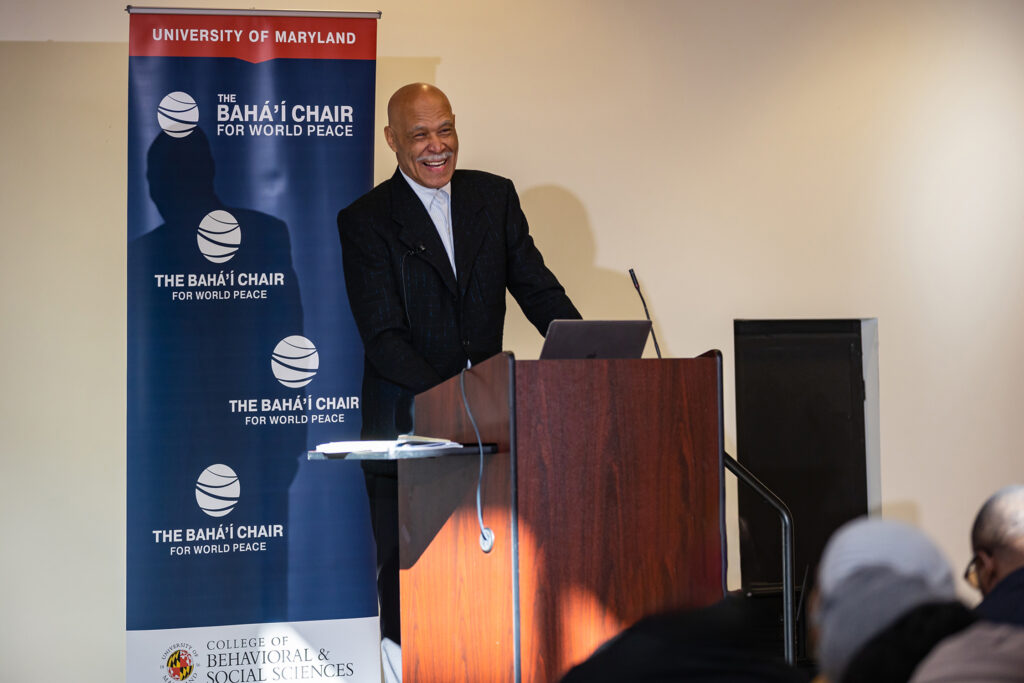
Drawing inspiration from this musical realm, O’Meally conveyed how individuals, despite their disparities and occasional conflicts, can collaborate towards a shared objective.
Relating these ideas to community building, these questions might be explored: How are we to strengthen patterns of interaction that promote unity in diversity and eliminate prevalent social factors that produce dissonance? How is this discourse related to your current efforts to build vibrant communities and, more broadly, to contribute to your society’s spiritual and material well-being?
Education as the Great Equalizer
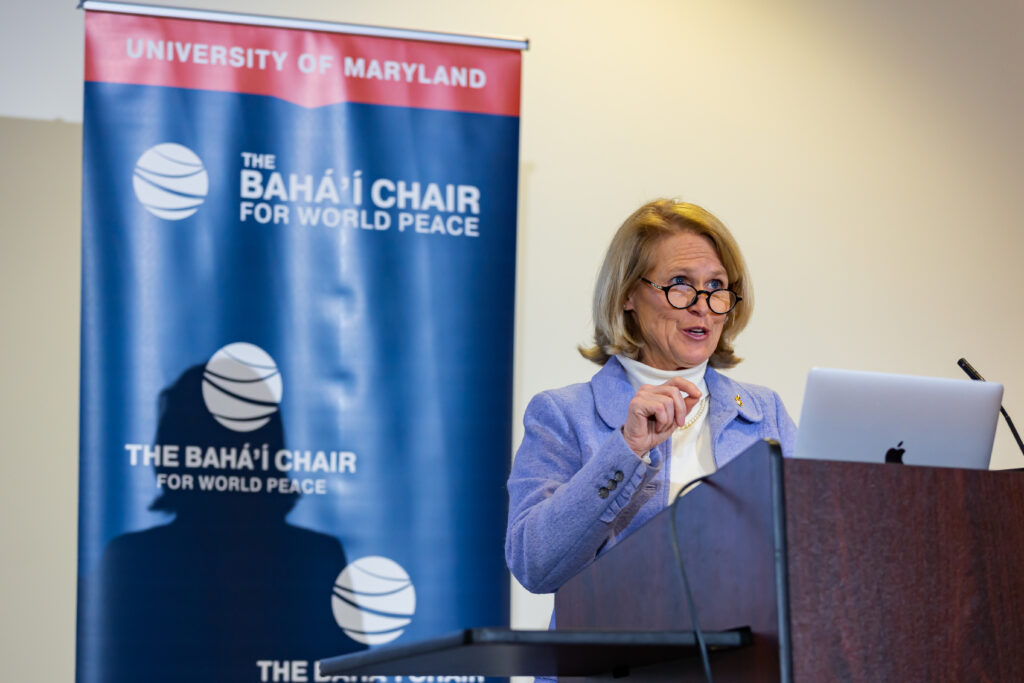
Another of the Chair’s events featured Jennifer King Rice, senior vice president and provost of the University of Maryland College Park. In her lecture, Rice examined the current state of the US education system, emphasizing the importance of “education as the great equalizer.” She showed how higher levels of education equate to better employment opportunities, lower incarceration levels, better health and exercise rates, and more civic engagement. Rice also explored how the US education system perpetuates inequality, resulting in disparities in educational outcomes and opportunities. Rice said the pandemic “erased two decades of progress” in math and reading scores.
Emphasizing the critical role of education in shaping both individuals and society, the lecture stressed the urgent need for collaborative efforts to address educational disparities, promote inclusivity, and establish a more equitable learning environment for all. Rice reiterated that education is not merely a means to acquire skills but a pathway to empowerment, enlightenment and societal progress.
Global Education Governance
In March, Zeena Zakharia, Assistant Professor of International Education Policy at the University of Maryland gave a lecture, “Ordinary Solidarities: Toward an Antiracist and Anticolonial Agenda in Global Education Governance.”
Her talk examined the critical role of global education governance and the significant contributions of local and refugee-led organizations in supporting refugee education.
Zakharia noted how violence worldwide has prompted forced migration on an unprecedented scale, creating complex challenges for education, particularly in the Global South, where most of the world’s refugees reside. Drawing on more than a decade of research on Syrian refugee education, she discussed power inequities in humanitarianism and explored the notion of “ordinary solidarities” as an anticolonial mandate for rights-based humanitarian interventions. Intertwining theories of humanitarianism with discussions of on-the-ground happenings in one particular school in Lebanon, she considered the implications of reconfiguring humanitarian relations and structures and potential for forging reparative futures.
Infrastructure, Wellbeing, and the Measurement of Happiness
The last event of the season was a discussion of the Baha’is Chair’s edited volume, “Infrastructure, Wellbeing, and the Measurement of Happiness.” This event featured two contributing authors to the volume, June Manning Thomas and Carol Ryff.
Thomas is the Centennial Professor Emerita of Urban and Regional Planning at the University of Michigan. Ryff is Director of the Institute on Aging and Professor of Psychology at the University of Wisconsin-Madison.
The discussion explored the current thinking and strategies around wellbeing, the measurement of happiness, and how infrastructure planning, construction practices, and urban and suburban design impacts human flourishing.


